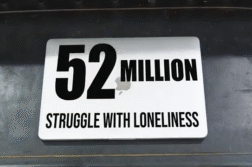ORLANDO, Fla. (Ivanhoe Newswire) – March 17th is Saint Patrick’s Day, but luck isn’t just for the Irish. While over 50 percent of Americans don’t believe in bad luck superstitions like breaking a mirror or spilling salt, many people still attribute opportunities and accomplishments to having good luck. The science of luck
From horseshoes to four leaf clovers, to a penny face up on the sidewalk, everybody has their own idea of a good luck charm.
Is it possible to forge your own luck? Experts say to have a chance you need to take a chance. If you want to win a game where the odds are very low, you still have to participate to win. If you want to win the lottery, no amount of wishing for it will help you, you have to buy a ticket. The science of luck
The science of luck tends to be less about pure chance and more about preparation meeting opportunity. Our brains are actually more involved with luck than we think. Experts say that unexpected, “lucky” actions tend to come from our subconscious, a phenomenon called pre-emptive perception. So, whether you call it luck, intuition, or just a good guess if it feels right do it.
If you’re trying to guess what someone’s thinking your guess might not be as lucky as you think. Experts say that our brains naturally mirror people we’re trying to empathize with making it easier to predict their intentions. So, if you find yourself more empathic than others you may want to try your hand at poker!
Contributor(s) to this news report include: Sabrina Broadbent, Producer; Robert Walko, Videographer; Robert Walko, Editor.
To receive a free weekly email on Smart Living from Ivanhoe, sign up at: http://www.ivanhoe.com/ftk



